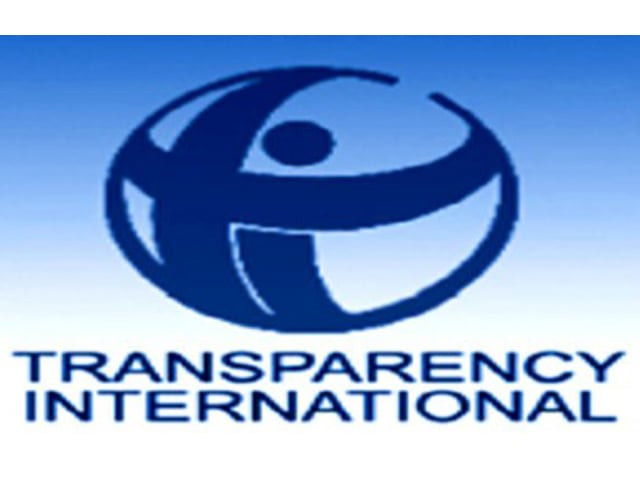Promoting transparency: ‘Legislature is the strongest pillar of state, civil society the weakest’
Transparency International Pakistan’s report is based on views of 33 experts.

Transparency International Pakistan. PHOTO: FILE
Legislature, with a strong legal framework, is inevitably the strongest pillar of the state whereas the civil society, with its lack of integrity is the weakest, according to a research conducted by the Transparency International Pakistan (TIP).
At a workshop held at the Marriott hotel on Saturday, the report titled ‘National Integrity Context and System Analysis (NICSA)’ was introduced.
TIP’s chairperson Sohail Muzaffar explained that their research accounted for the 13 pillars on which the state was based. “If they are put in the right places, society can improve as a whole.”
The report reviews and assesses the major causes and solutions of corruption with respect to the 13 pillars: legislature, executive, judiciary, public sector, law enforcement agencies, electoral management body, ombudsmen, supreme audit institution, anti-corruption agencies, political parties, media, civil society and businesses.
According to Muzaffar, the most important pillars are the media, judiciary and executive.
Another official of the TIP, Syed Fawad, explained that the research was an attempt to determine where the weaknesses lay and then critically analyse the structure. “We believe that a government or state is built on these pillars. If any one of the pillars is weak, the whole system may collapse.”
Another speaker, Dr Muneer, the brains behind the report, revealed that it was based on the interviews of 33 experts from different fields. She added that data collection took around a year.
Findings
The research concludes the legislature to be the strongest pillar because of its well-placed laws and good resources.
When it comes to the executive, however, who include the prime minister, the president and others, the report finds them to be low on governance. “The executives declare their assets, but their verification and accountability is low.”
The report states that the cabinet division often violates the allocation of funds because of incompetency and abuse of power. Regarding the judiciary, Dr Muneer said that, while the higher judiciary was strong, corruption existed at the lower levels.
Public sectors play no part in educating the general public about anti-corruption practices. Meanwhile, the law-enforcement agencies suffer from poor infrastructure and the lack of modern intelligence techniques and financial and human resources. Media can be effective if the right to information is ensured. As far as reporting is concerned, the media maintains its integrity, the report found. It pointed out, however, that bribery was common practice in businesses, whereas the civil society was plagued by weak integrity and almost no accountability.
Published in The Express Tribune, November 3rd, 2013.


















COMMENTS
Comments are moderated and generally will be posted if they are on-topic and not abusive.
For more information, please see our Comments FAQ